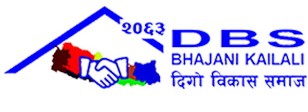About this project
This project aims to economically empower 100 marginalized women in Kailali, Nepal—particularly from Dalit, Indigenous, and ex-Kamaiya communities—through the establishment of women-led eco-friendly enterprises and adoption of clean energy solutions. Over a one-year period, the initiative will support the creation of 10 community-based Saal leaf plate enterprises, provide vocational, entrepreneurial, and digital skills training, and facilitate access to startup capital and market linkages through cooperatives. To address environmental and health challenges, the project will promote the use of improved cookstoves and solar panels, reducing firewood dependency and carbon emissions. It will also strengthen women's leadership by enabling their participation in community decision-making spaces, including cooperatives and Local Disaster and Climate Resilience Plans (LDCRPs). Implemented in collaboration with local governments, SMEs, and forest user groups, the project promotes circular economy practices and sustainable resource use. This community-driven model offers a scalable pathway to gender-equitable climate resilience and green economic development in rural Nepal.
Goals and Objectives
Goal
To economically empower socially excluded women while advancing environmental sustainability and gender-responsive climate resilience through green, community-driven solutions.
Key Objectives
Economic Empowerment: Establish 10 women-led enterprises producing eco-friendly Saal leaf plates. Train women in business, digital, and vocational skills.
Clean Energy Adoption: Facilitate access to improved cookstoves and solar panels, reducing firewood use, indoor air pollution, and environmental degradation.
Leadership and Inclusion: Strengthen women’s participation in community-based organizations, cooperatives, and Local Disaster and Climate Resilience Plans (LDCRPs).
Environmental Sustainability: Promote circular economy practices, replacing plastic with biodegradable products and integrating solar-powered solutions.
Partnership and Systems Strengthening: Engage local governments, cooperatives, SMEs, and forest user groups to support and sustain the model.
Expected result
1. 10 Women-Led Enterprises Established
Specific: By the end of the project, 10 women-led community enterprises will be established in Kailali for eco-friendly Saal leaf plate production.
Measurable: Verified through registration documents, enterprise setup checklists, and cooperative records.
Achievable: Supported by training, startup kits, and cooperative facilitation.
Relevant: Strengthens women’s economic participation and green enterprise development.
Time-Bound: Achieved within 12 months.
Monitoring Tools: Monthly enterprise reports, field visits, and cooperative feedback.
2. 100 Women Trained in Key Skills
Specific: Train 100 marginalized women (Dalit, Indigenous, ex-Kamaiya) in vocational, entrepreneurial, leadership, and digital skills.
Measurable: Attendance records, pre/post-tests, and training completion certificates.
Achievable: Delivered in batches using local trainers and partner NGOs.
Relevant: Builds capacity for employment, business development, and local leadership.
Time-Bound: Completed by Month 10.
Monitoring Tools: Training reports, feedback forms, and MEAL tracking database.
3. 100 Households Adopt Clean Energy
Specific: Facilitate adoption of 320 improved cookstoves and distribute 30 solar panels to enterprise groups.
Measurable: Distribution records, cooperative loan tracking, and usage follow-up.
Achievable: Through partnerships with local suppliers, cooperatives, and government subsidies.
Relevant: Reduces deforestation, health risks, and carbon emissions.
Time-Bound: Completed by Month 11.
Monitoring Tools: Beneficiary interviews, stove/survey usage forms, and cooperative reports.
4. 200 Women in Leadership Roles
Specific: Enable 200 women to assume decision-making roles in community-based organizations, cooperatives, or local governance.
Measurable: Verified through participation records, meeting minutes, and leadership rosters.
Achievable: Built through focused leadership training and mentorship.
Relevant: Enhances inclusive governance and local resilience.
Time-Bound: At least 50% of target achieved by Month 9; full target by Month 12.
Monitoring Tools: Leadership activity logs, community feedback, and CBO reports.
5. Improved Household and Environmental Outcomes
Specific: 80% of participating women report improved income, reduced firewood use, and safer working conditions.
Measurable: Midline and endline surveys, household interviews, and income records.
Achievable: Through skill development, clean energy use, and market linkage.
Relevant: Aligns with project goals of economic empowerment and climate resilience.
Time-Bound: Measured at Month 6 (midline) and Month 12 (endline).
Monitoring Tools: MEAL-led surveys, field observation, and income tracking.
These SMART results are well-aligned with LWF Nepal’s existing monitoring capacity, including its digital MEAL system, local partners, and trained field staff. Regular quarterly reviews will ensure adaptive management and accountability throughout the project lifecycle.
Partners


About me / organisation
Lutheran World Federation (LWF) Nepal
Since 1984, LWF World Service is supporting vulnerable populations in Nepal, including refugees, host communities, internally displaced persons (IDPs), and those facing socio-economic, climate, and disaster-related risks. LWF Nepal has focused on empowering marginalized groups such as women and girls, persons with disabilities, Dalits, youth, ex-bonded laborers, and indigenous communities. By strengthening community-based organizations, LWF Nepal works to amplify these groups' voices and increase their participation in efforts to secure equitable access to livelihoods, quality services, and social protection.
A key pillar of LWF Nepal’s work is promoting gender and social inclusion through targeted affirmative actions, ensuring that marginalized groups are better represented and supported in society. LWF Nepal also engages closely with the government, recognizing it as the duty-bearer in addressing the needs of these communities, while fostering collaboration with the private sector and other development partners to achieve its goals. Through these partnerships, LWF Nepal continues to advance social cohesion, protection, and resilience within vulnerable communities.
Website Website